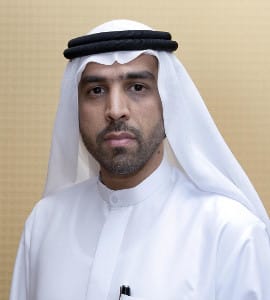Private banking is an exclusive service offered to people with a high net worth. The best private bank will give you a dedicated relationship manager and, in some cases, uses a team approach to give you expert advice on a variety of financial subjects.
Clients get access to a range of financial services, which may include financial planning advice, exclusive credit cards, portfolio management, investment strategies, retirement planning, and hedge fund investing among others.
While often used interchangeably, the terms private banking and wealth management don’t refer to the same thing. Wealth management is a broad category that deals with optimizing a client’s portfolio. Personal banking offers personalized care and management of finances for the extremely wealthy.
Do You Qualify for Private Banking?
Being the realm of the rich, private banking is not available to everyone who has a savings or checking account. The specific eligibility requirements vary from bank to bank, but the service is reserved for high-net-worth individuals. Some banks are happy with clients who have six figures in investable assets while others demand eight-figures.
Investable assets are any assets that are liquid or easily liquidated. They may include the money in checking and savings accounts, bonds, retirement accounts, money market accounts, trusts, and stocks. Understandably, many banking institutions don’t make their standards known.
It is possible to qualify for private banking even if you don’t meet the minimum requirements. A good example of an exception to the rules is the children of wealthy individuals. Banking institutions are always looking to the future, specifically wealth transfers. They want to make sure that funds stay with them even after the wealth changes hands.
Young professionals who, based on their education and career path, appear to be on the track to meeting minimum requirements may receive an exception. Commonly referred to as the emerging affluent, they can prove valuable clients for the private bank and wealth management firms in the future.
Should You Become a Private Banking Client?
The concierge nature of private banking is one of the factors that makes it such an attractive product. However, that’s not all it has to offer. Private bankers offer a one-stop-shop for all of your banking needs. That said, here are some of the benefits you can expect with private banking.
1. Dedicated Representative
The main perk of private banking is that you are assigned a dedicated representative, or a team of people, whose job is t understand your circumstances and cater to your financial needs. The representative makes it easier to initiate wire transfers, deposit checks, and more.
You will never have to worry about waiting on hold to talk to the next available representative. Because your dedicated manager has intimate knowledge about your financial situation, you won’t have to repeat your preferences every time you need something at the bank.
2. High Investment Returns
Banking institutions allocate the best-performing staff to the private banking division to manage the finances of high-net-worth individuals. The result is higher investment returns for the clients.
The average rate of returns from private banking investments is 7% to 13%. Sometimes that rate goes as high as 30%. The extensive resources offered by private banking allow clients access to investment vehicles like high-performance hedge funds. You also get expert advice on investment options with high rates of returns.
3. Access to a Network of Specialists
Your dedicated manager has got you covered and will connect you to the right specialists. They will connect you to the best tax attorney, estate advisor, investment analyst, or any other specialist you need. The ability to have your private banker set up meetings with these specialists can be a time-saving perk for you.
For many private banks and wealth management firms, having a comprehensive and multi-disciplinary team of professionals with expertise in different financial areas is the key to business success. It allows them to provide the best wealth advisory services, which is key when dealing with high-net-worth clients.
4. Perks and Discounts
Every private bank offers some perks for their clients as a reward for the large volume of business they bring. Services like estate management, tax preparation, wealth management & investment advice, and corporate checking will be offered at a discount.
The foreign exchange rates are attractive for clients involved in the export and import business. Those involved in real estate will benefit from fast-tracked transaction processing through lead advisors. You will get access to lines of credit at lower interest rates than regular clients.
If opening a savings account, the bank may give you a higher annual percentage yield. From time to time, private banks host exclusive events so that they can interact with their high-net-worth clients. And even with the ongoing pandemic, there are still virtual opportunities like virtual wine tasting to connect.
5. One-Stop-Shop
In addition to discounted products, private banking clients get everything consolidated under one roof. You get enhanced services from a dedicated manager, who acts as the liaison with different departments within the bank. This ensures that you only get the best without having to knock on every door.
6. Privacy
Customer dealings and transactions offered to high-net-worth individuals such as private banking are anonymous. You will have access to proprietary products, and the dealings will be confidential to prevent competitors from selling similar products to the same people.
A culture of privacy is important to the wealthy as publicizing personal information could compromise their business interests. It helps protect them in case of lawsuits involving their investments. For most, keeping personal information private provides a sense of security.
7. Business Benefits
If you are a business owner, a relationship with a private bank can help your business grow faster. You can open your business and personal account with the same private bank, and enjoy lending opportunities and other benefits.
Moving funds from one account to the other will be hassle-free. Not to mention, you get to enjoy promos and discounts offered to regular clients.
Enjoy the Best of Private Banking
If you’re searching online for “private banks near me”, the guide above will help you choose the best private bank for you. Private banking makes it easy for high-net-worth individuals to manage their financial affairs in one place. It’s something to consider if you have over $500,000 investable assets and need the convenience of a bank concierge.








